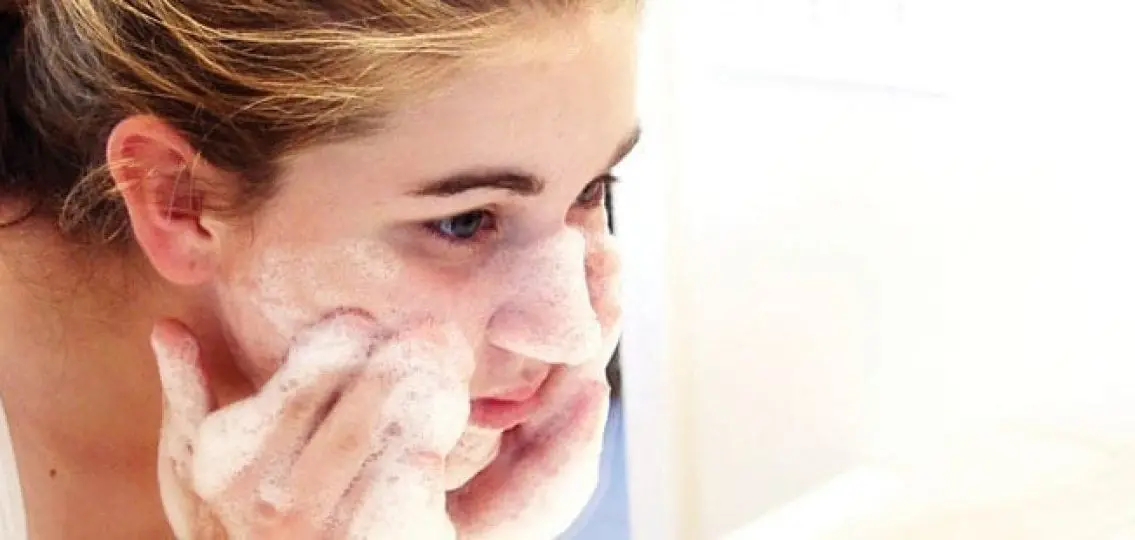One of the best ways to ensure healthy, wrinkle-free faces as adults is to start caring for your skin as a teenager. But sometimes, it can be hard to get teens to talk—or take action—about these issues. Your Teen spoke with Dr. Douglas Hackenberg, a pediatrician with Children’s Medical Group, a primary care practice in the UH Rainbow Care Network, to talk acne, sunscreen, and the importance of communicating with your pediatrician about a teenager’s skin.
Discussing Teenage Skin Care Advice
Q: What’s going on with skin in adolescent years?
Hackenberg: Well, there’s a lot, but the biggest thing that kids rarely ask about is acne. Kids will come in with significant cases, and I’ll ask them if they have any questions. They’ll go through a bunch of things—but never mention acne.
Q: Why do you think that is?
Hackenberg: I think half are embarrassed, and half don’t care. Often, it’s the parents who bring it up; sometimes they’re the most bothered by it.
Q: Is acne considered a serious medical condition?
Hackenberg: Cystic acne—think deep, red, and painful—tends to lead to scarring, which is a problem. We can prevent this by treating acne early and aggressively. The more aggressive you are, the less problematic it is. It’s hard to treat a severe breakout after the fact.
Q: What can teens do to prevent and treat run-of-the-mill acre?
Hackenberg: Start simple with a good facial cleanser. A lot of times teen will say, “I just use whatever bar soap or shower soap we have.” That’s not the best solution for the face. The wax tends to block the pores, which can lead to more breakouts. If you’re treating acne at home, look for topical treatments with benzoyl peroxide. For over-the-counter washes, look for products that contain salicylic acid.
Q: What else do teens need to consider for skin care?
Hackenberg: The sun is a big concern. It’s good to be in the sun for a few minutes to get some Vitamin D, but you really need to protect yourself. We’re starting to see skin cancer in young people.
Q: What’s the solution?
Hackenberg: Buy the highest SPF that you can get your kids to wear; I like 75 or 80. Parents often ask whether there’s a difference between an SPF of 70 or 50 and who knows? But why risk it? I also educate teens on reapplication. They’ll go for five hours without re-applying sunscreen, but the effectiveness has worn off by then, especially if they were swimming. Most sunscreens recommend reapplication after 90 minutes. That’s two or three applications for a full day in the sun.
It’s also important to remember to apply sunscreen even when it’s not 80 degrees. When kids go skiing, they sometimes forget that the sun reflects off the snow. They think, it’s 30 degrees, and they can’t get sunburn. But, they absolutely can. Sunscreen is their best friend in all these cases.
Q: What are your thoughts on products that mimic the sun, like spray tans?
Hackenberg: Personally, I think they just look bad. I haven’t seen enough information that says they’re bad for you, but rare is a spray tan that looks like a sun-based tan. I don’t usually recommend it to patients, but I can’t say it’s bad for you.
Q: What about tanning beds?
Hackenberg: I definitely don’t recommend tanning beds. They’re awful for you. The booths themselves are generally filthy. I see so many people coming to me with staph and bacterial infections from laying in them. The fluorescent lamps in the bed are just as bad as unregulated sun exposure. It’s awful for your skin, long term. It gives your skin a leathery, weathered quality, and it increases your risk of skin cancer.
Q: Should teens treat sensitive skin differently than “normal” skin?
Hackenberg: Sensitive skin is a catchall term for skin conditions. To treat sensitive skin, doctors need to know the symptoms: Is it a rash? Dry? Sometimes, “sensitive skin” simply means you’re not putting on enough lotion, or you’re washing with abrasive soaps that wash the moisture away. Doctors really need to understand your specific concerns.
Q: You talk a lot about the importance of keeping moisturized. Are there specific ingredients parents should look for when buying moisturizers?
Hackenberg: I personally don’t look for a specific ingredient. I like the ones without perfume. The best ones are the plain boring ones. You’re just using it for moisture. There’s no reason to get fancy. There’s no one ingredient that your moisturizer must have.
Q: What are your thoughts on the trend of teens piercing their cartilage?
Hackenberg: When you pierce cartilage, you have to pierce through skin. I’m not a big fan because if you get an infection, it can be a lot more difficult to treat. Ear cartilage, for instance, doesn’t have as rich a blood flow as other skin parts, so if it gets infected, it’s harder for the medicine to go where you need it to.
Q: Any last takeaways for parents?
Hackenberg: There are a lot of good options for treating acne, but here’s the thing: if the teen isn’t bothered by it, you can give them 8 million things to try, but they’re not going to use it. Teens, as a whole, tend to be unmotivated, so as a parent, you really need to educate them about the importance of skin care.




